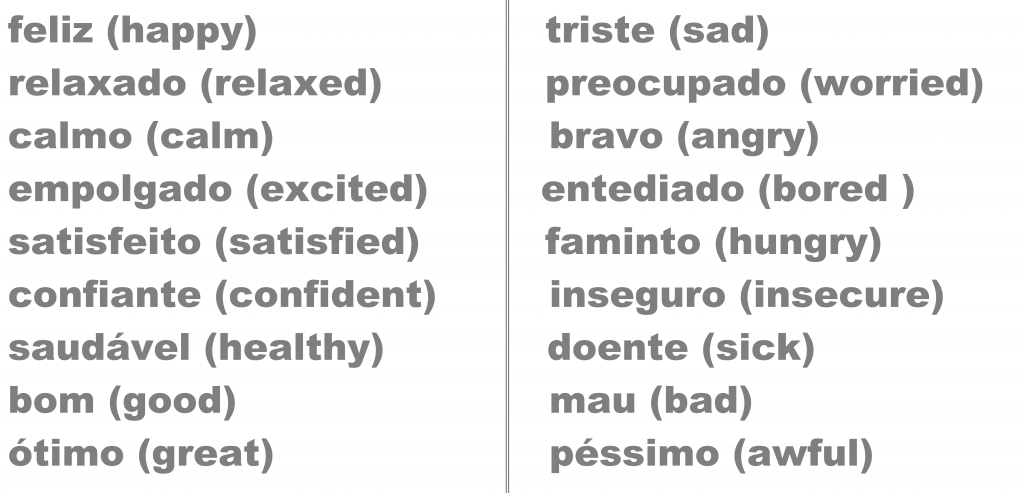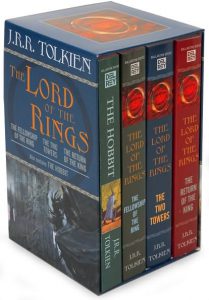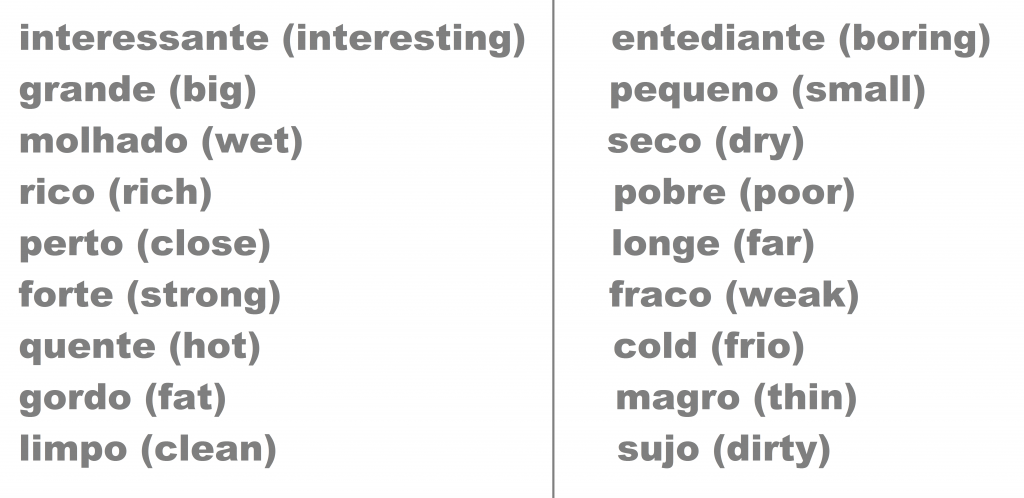Ei, gente! Hey, guys!
Como está o dia de vocês? (How is your day going?)
To answer this question, you’ll probably need adjetivos (adjectives). Adjectives words that modify nouns. They are used to describe and give information about things, ideais and people. Therefore, they are terms constantly used in our everyday lives.
Veja só (Take a look):
- Aquele cara loiro é meu namorado (That blonde guy is my boyfriend)
- Garçom, essa sopa está fria (Waiter, this soup is cold)
- Phil está usando um suéter vermelho (Phil is wearing a red sweater)
Adjectives in Portuguese usually appear after a noun:
- Meus pais moram em uma casa enorme (My parents live in a huge house)
- Titanic é um filme muito emocionante (Titanic is a very exciting film)
Or after a connective verb, such as be, look, seem, feel:
- O carro deles é novo (Their car is new)
- Sua mãe parece cansada(Your mom looks tired )
- Me sinto ótima essa manhã (I feel great this morning)
There are many type of adjectives with differente purposes:
Indicate a cor (the color) of something:

Exemplos:
- Onde estão meus sapatos pretos? (Where are my black shoes?)
- O prefeito mora naquela casa verde (The mayor lives in that green house)

Leonardo diCaprio tem olhos azuis
Describe sentimentos(feelings ) or qualities:

Exemplos:
- Estou muito empolgado com meu aniversário! (I’m really excited about my birthday!)
- Por que você está tão chateado? (Why are you so upset?)
- Meus vizinhos são pessoas honestas (My neighbors are honest people)
To express an opinion or judgment of value:

- Matemática é tão complicado (Math is so complicated)
- A peça foi fantástica! (The play was fantastic!)
- Eu acho que o irmão da Lilian é muito gato (I think Lilian’s brother is very cute)
To talk about idade (age) or duration of something:
- Meu avó tem 86 anos, ele é velho (My grandpa is 86, he’s old )
- Comédias geralmente são curtas (Comedies are usually short )
- Preciso de um vestido novo para a festa (I need a new dress for the party )

O Senhor dos Anéis é um livro tão grande
To refer to the nationality of something or someone:
- Minha irmã ama filmes franceses(My sister loves French films )
- Esse relógio é suíço(This watch is Swiss )

Neymar é um jogador de futebol brasileiro
*Note that nationalities in Portuguese are not in capital letter
Talk about o tamanho (the size) e lenght of objects:
- O Empire State em NY é muito alto(The Empire State Bulding in NY is very tall )
- Amo usar saias longas no inverno (I love to wear long skirts in the winter)

O chiuaua é um cachorro pequeno
Other common adjectives:

But hey, pay attention! Adjectives in Portuguese vary according to number and gender. Look:
- Existem muitas cidades encantadoras na Itália (There are lovely cities in Italy)
- Me ajude com essas sacolas pesadas (Help me with these heavy bags)
Was that easy? Have a great week!












Comments:
Patricia:
thank you for these lessons, which I appreciate and learn from. But this current one (adjectives) presents serious problems–I like to copy them into a word document so that I can keep and study them…but this had disproportionate charts that could not be read on screen,and certainly could not be copied into a word document.
carol:
@Patricia Hey, Patricia. Thanks for reading our blog. When you say “serious problems” are you referring just to its format?
I could read the charts just fine both in my computer and my phone, so I’m not sure what kind of issues you might be experiencing on your screen. Maybe you could copy the text into a word document and then save each image and chart individually, and add them to your document afterwards.
I hope I could help